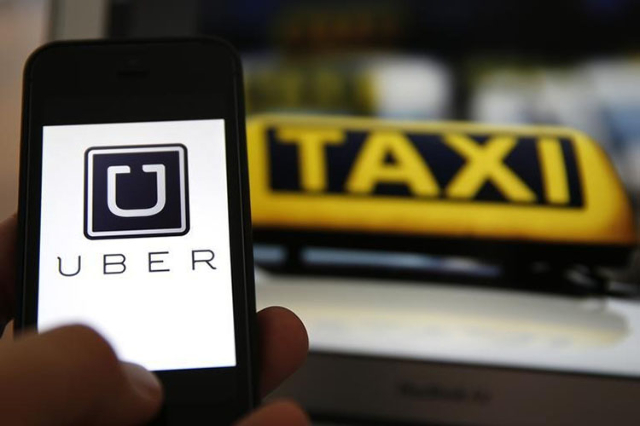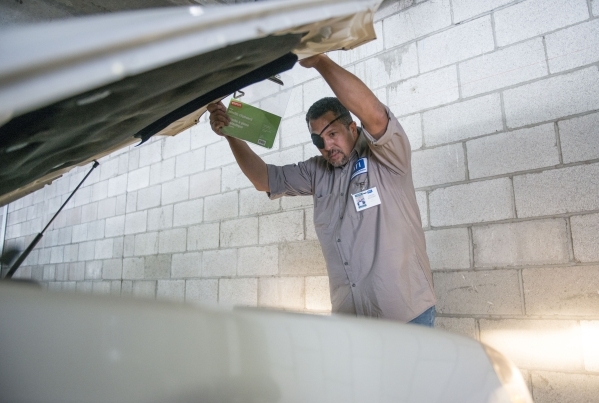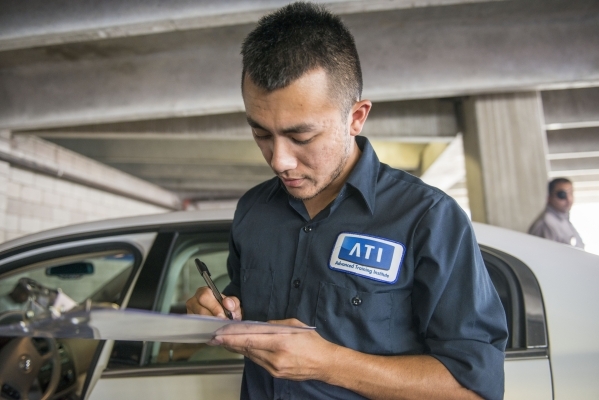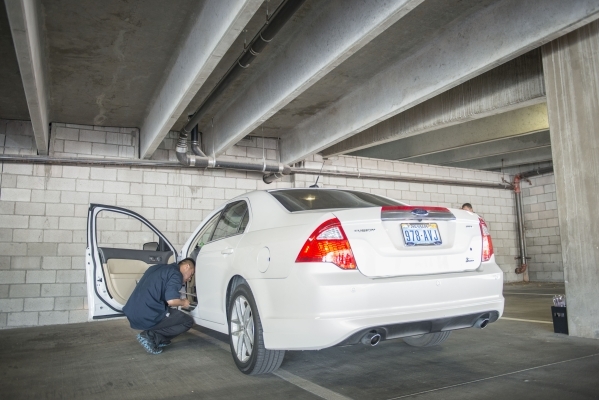Ride-sharing companies start their engines
A new transportation option is available in the valley.
And it might even be legal.
Unless you've been living in a cave for the past year, you've probably heard of Uber and Lyft, transportation network companies that enable the public to purchase transportation services from a contracted driver who has been screened by those companies and uses his personal vehicle to offer a ride for a fee.
They call themselves "ride-sharing companies," although they really don't share anything — they sell it. So, in the news biz, we call them "ride-hailing companies" because you, the customer, hail a ride through an app on a smartphone. They're also called transportation network companies, or TNCs for short.
The process is really pretty easy. Individuals with Apple or Android devices download a free app to their respective phones, then fill out an application that includes their credit card information.
To hail a ride, you press a button on the app. That activates a hail to the closest available driver in the neighborhood. Once a driver accepts the request, information is relayed to your phone that explains what kind of car will be arriving, its color and a picture of the driver.
A cost estimate is provided, and the customer can see a graphic representation of the car as it arrives on a map.
When the rides are completed and customers are dropped off, they get an emailed receipt showing how much was charged to the credit card. Customers then are asked to rate the experience. Drivers with low ratings are subject to being removed from the app by the company.
So you may have also heard that there has been some tension among ride-hailing companies, the county and the state. And there's some outright hatred of those companies by taxi company owners and their drivers who rightly believe they're going to lose business to the newbies.
So what's the problem and who's at fault for all the tension?
There's plenty of blame to go around.
First, representatives of Clark County and the state of Nevada did a huge disservice to the public by failing to communicate with each other, and that has resulted in a quandary for the TNCs.
Credit the TNC lobbyists — they knew exactly which legislators to approach to carry the ball to get legislation approved to legalize the companies. The taxi companies never knew what hit them, and before you could say "Uber on," the legislation, filled with provisions the TNCs liked but lacking a level playing field for their cab company competitors, was passed.
The legislation had deadlines assuring that regulations would be written and approved quickly.
The Nevada Transportation Authority, its hands tied by the legislation, whisked through the approval process. Transportation Authority members and the public, speaking at hearings the board conducted, suggested all kinds of ideas to level the competitive playing field and to set a safety standard already met by taxi and limousine companies.
While all this was going on, it seemed nobody at Clark County was paying attention. So when the county established a timetable to approve how TNCs were going to be treated in business licensing, they didn't seem to realize that the state regulations required them to be operating within 30 days of licensing. In fairness to the county, legislators didn't invite it to the table to discuss the local ramifications of operating, but you would think someone would have seen this and jumped in for the benefit of the public.
When the county introduced the business license ordinance last week and wouldn't consider allowing a temporary license to function in the short term, the TNCs made a brash decision — they ignored the county's concerns and began operating regardless of the county's warnings.
The county warned them not to try to pick up or drop off passengers at the county-run airport. The TNCs promised they would warn their drivers they could receive citations for illegally operating as a for-hire transport company at the airport. At last count, airport personnel had written 81 citations to Uber and Lyft drivers, which tells me that the TNCs didn't do a good job of explaining things to their contracted drivers or that the drivers did whatever they wanted, regardless of regulations.
It will be interesting to see if the taxi industry responds with a lawsuit or if the county tries to further flex its own legal muscles against the TNCs.
Throughout the entire process, the transportation network companies have exhibited an extraordinary level of self-importance, knowing that an adoring public loves and wants them.
Hang on, everybody. The TNC thrill ride has just begun.
Life Is Beautiful festival
Life is beautiful, but traffic can be ugly.
So, while thousands of people jam into downtown Las Vegas next week — many of them, hopefully, in shuttle buses — for an impressive lineup of performers, motorists who use the streets for business are going to be frustrated.
That's because to prepare for the Life Is Beautiful festival, several streets are going to be closed in advance of the event, scheduled Friday through Sunday.
According to festival organizers, many downtown streets are already closed.
By midnight Thursday, just about every street within the boundaries of Las Vegas Boulevard to the west, 11th Avenue to the east, Mesquite Street to the north and Bridger Street to the south will be closed.
You get the picture. If you're planning to drive, it's going to be ugly.
Do yourself a favor and avoid the area unless you plan to attend the festival.
Questions and comments should be sent to roadwarrior@reviewjournal.com. Please include your phone number. Follow the Road Warrior on Twitter @RJroadwarrior

























